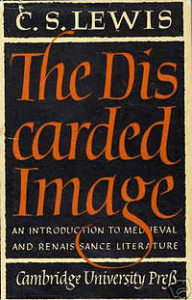I teach a historiography course each year. In it, I cover not only the basics of the history of history writing and how to research and document sources, but also the philosophy of history. As a Christian, I see history as an ongoing story of the relationship of man to God and man to man. There was a beginning, there was a key moment in the “plot,” so to speak, when God came to earth in the form of man, and there will be a grand finale.
 Although C. S. Lewis was not a historian, he was in tune with this viewpoint. In his work The Discarded Image, he explained the difference between a Christian view of history and a typical view from an ancient civilization:
Although C. S. Lewis was not a historian, he was in tune with this viewpoint. In his work The Discarded Image, he explained the difference between a Christian view of history and a typical view from an ancient civilization:
To the Greeks, we are told, the historical process was a meaningless flux or cyclic reiteration. Significance was to be sought not in the world of becoming but in that of being, not in history but in metaphysics, mathematics, and theology. Hence Greek historians wrote of such past action—the Persian or the Peloponesian War, or the lives of great men—as have a unity in themselves, and were seldom curious to trace from its beginnings the development of a people or a state. History, in a word, was not for them a story with a plot.
The Hebrews, on the other hand, saw their whole past as a revelation of the purposes of Jahweh. Christianity, going on from there, makes world-history in its entirety a single, transcendentally significant, story with a well-defined plot pivoted on Creation, Fall, Redemption, and Judgement.
Christianity, therefore, makes sense of the whole of humanity’s past; it has an explanation for why things are as they are today. I’ve never viewed my profession as a historian to be separate from my overall understanding of mankind seen through the Biblical lens. That’s why, to me, history remains fascinating.
